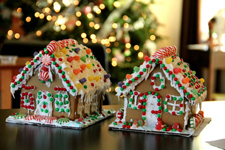Take Care of Your Teeth This Christmas

With Christmas just a few days away, we are all getting ready to enjoy the festivities. At this time of year, it is difficult to abstain from the sugary treats that seem to be everywhere. One of the major enjoyments is sharing food and drink with family and friends.
Here are some tips to minimise the potential damage to your teeth!
- Tubs of sweets are often found on coffee tables at this time of the year. You’d be surprised at how many patients we see with lost fillings after eating toffees. Cracked teeth from eating nuts and hard boiled sweets is another thing to be careful of.
- Only use your teeth for what they are meant for. Using them to open bottles, parcels, break tape or tags on new clothes is never a good idea and often results in chipped or broken teeth.
- Try to eat sugary snacks in one go rather than throughout the day. This will reduce the amount of time your teeth are exposed to the sugar.
- If you’re snacking, savoury is better for the teeth than sweet – you’ll do less damage with a packet of crisps than with a packet of raisins.
- If you are drinking full fat coke, wine, juices or other acidic drinks, don’t brush your teeth for an hour afterwards. The acid in these drinks causes erosion and you’ll make it worse by brushing. If you are having juice for breakfast, brush your teeth before rather than after you drink it.
- Eating cheese after Christmas dinner is a great for helping your teeth. Cheese contains alkali, which neutralises the acid left by the food you’ve consumed; drinks such as coke, and sweet foods such as Christmas pudding and mince pies are particularly acidic, so eating cheese after these will be effective and could really help to minimise damage.
- Clean your teeth twice a day using a fluoride toothpaste. Do not rinse with water afterwards, you will simply wash away the effect of the fluoride.
- Sugar free chewing gum is recommended, especially after consuming acidic foods or drinks. This will increase saliva flow and help to neutralise acids.



